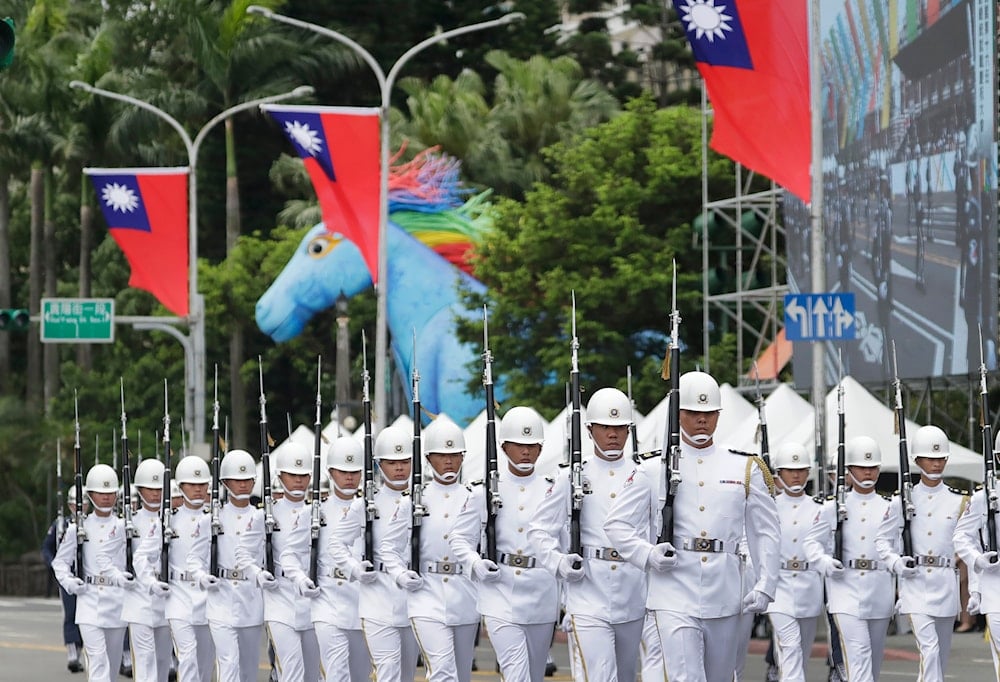China opposes Japanese, South Korean lawmakers' visit to Taiwan
Chinese embassies in Japan and South Korea opposed the visit of lawmakers from both countries to Taiwan amid the inauguration ceremony of the leader.
-

Members of an honor guard march during an inauguration ceremony of Taiwan's President Lai Ching-te in Taipei, Taiwan, Monday, May 20, 2024. (AP)
The Chinese embassy in Japan said today that it strongly opposes Japanese lawmakers visiting Taiwan, expressing firm disapproval.
An embassy spokesperson said in a statement, "The Japanese government and some politicians ignored China's strong opposition and congratulated Taiwan's Lai."
In a similar context, the Chinese embassy in South Korea also said that it opposes and denounced South Korean lawmakers visiting Taiwan to attend the so-called "inauguration ceremony of the leader".
This move runs against the China-South Korea strategic cooperative partnership, a spokesperson for the embassy said.
China reaffirmed 'one China' policy amid Taiwan's Lai's inauguration
Wang Yi, China's Foreign Minister, said on May 20 that Taiwan's internal politics do not obstruct the fact that the island and China are one part of a full entity, calling all attempts for its independence "dangerous", specifically after Lai Ching-te was instated as president.
At a meeting of Shanghai Cooperation Organization foreign ministers held in Kazakhstan, the Chinese top diplomat said that Taiwan's efforts for independence were "the most serious challenge to the international order," the "most dangerous change in the status quo," and the main disruptor of peace in the Taiwan Strait.
Wang Yi further asserted that China and Taiwan were one entity as per historical facts, noting that their reunification was inevitable.
When asked about Lai's inauguration, Chinese Foreign Ministry spokesperson Wang Wenbin warned of the "political manipulation" certain countries exercised regarding the Taiwan issue, which interfered with China's internal politics.
"China strongly condemns this, and will take some necessary measures to resolutely protect national sovereignty and territorial integrity," he said.
Lai gave his inauguration speech earlier, in which he urged China to "stop threatening Taiwan with war," and to choose dialogue instead of confrontation when it came to Taiwan. He further stated that Taiwan would not be intimidated by China, as it kickstarts a "new era of democracy."
Beijing's Taiwan Affairs Office spokesperson Chen Binhua slammed the speech for promoting separatist notions, provoking cross-strait confrontations, and accused Taiwan of depending on foreign forces for its independence.

 2 Min Read
2 Min Read








